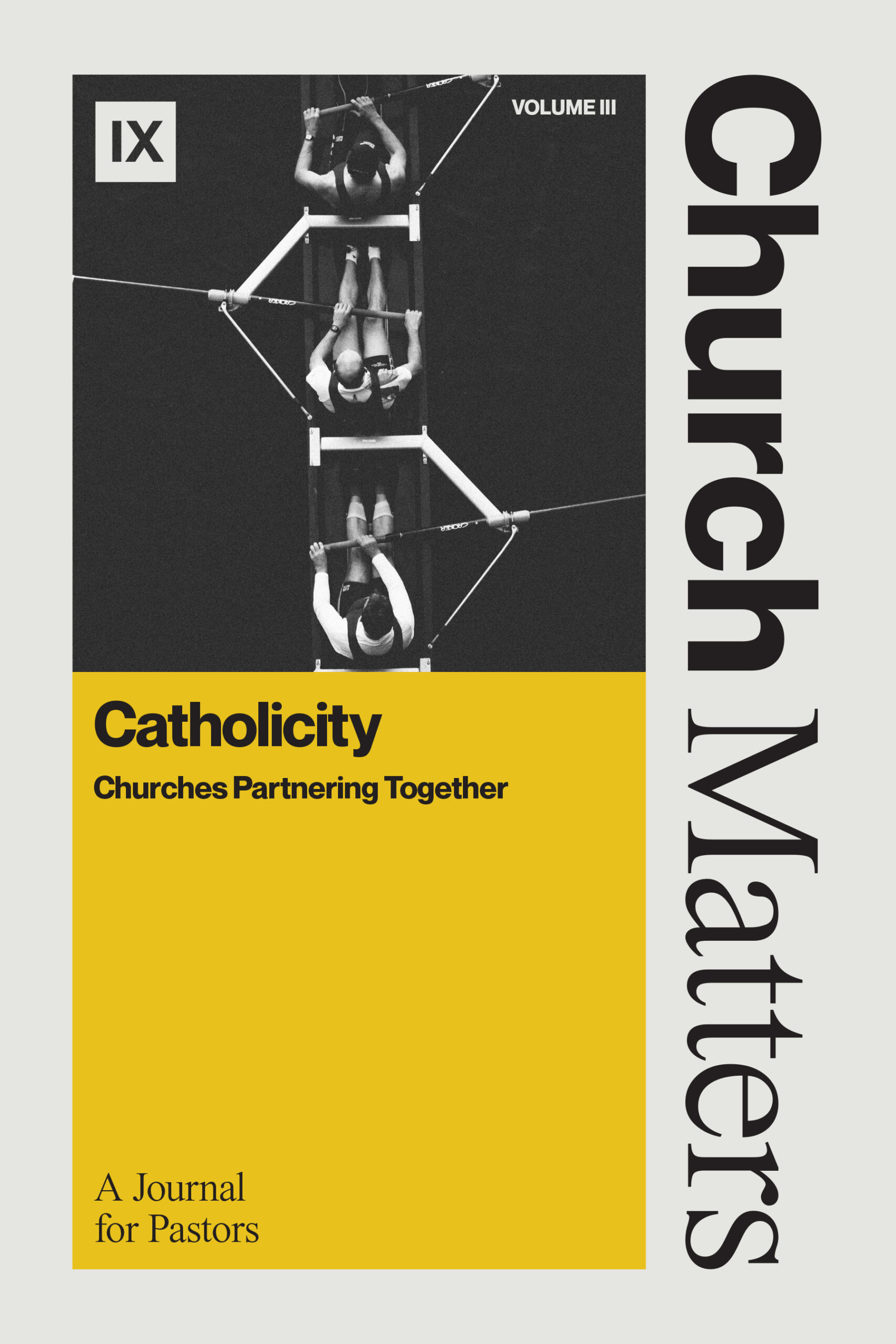What I’ve Learned from the Presbyterians
I’m a Baptist by conviction, but most of my teachers have been Presbyterians. The pastor under whose ministry I was converted was ordained in the PCA. The pastor who mentored me in high school was a Presbyterian. The church elder whose mentorship and example has shaped my life for 35 years comes from a Dutch Reformed background. All my seminary professors were Presbyterians, and a quick survey of the books on my shelves indicates that most of them were written by Presbyterians. In fact, I think I’ve only had one senior pastor in my life who wasn’t a Presbyterian.
Put simply, I’ve learned quite a bit from thinkers, teachers, and theologians who come from a denomination different from my own. Here are a few things I’ve learned from Presbyterians:
1. THE CONTINUITY BETWEEN OLD AND NEW TESTAMENTS
While Baptists emphasize discontinuity, Presbyterians helpfully stress the unity that exists across the testaments with the purposes of God, the people of God, and the way of salvation. This insight unlocked the Old Testament for me and gave me two-thirds of my Bible back.
2. THE IMPORTANCE OF CHURCH CONNECTIONS
Did you know that Presbyterians refer to their elder boards as “the session”? I didn’t, at least not until I went to seminary. As a congregationalist, there are aspects of Presbyterian government that I can’t endorse, but I have greatly appreciated the example that these churches set in taking care of and supporting one another.
One unfortunate downside of being right congregationalism is that it can unintentionally foster an atmosphere of independence, isolation, and even competition between churches. One happy advantage of Presbyterianism is that it encourages individual congregations and their pastors to consider themselves as part of the much larger body of Christ. I have been challenged and sharpened by watching the way my Presbyterian fellow pastors look out for one another and care for each other’s churches. We would all do well to emulate that aspect of their church life, even if we don’t formalize it under the authority structure of a presbytery.
3. AN APPRECIATION OF REDEMPTIVE-HISTORICAL PREACHING
In Luke’s Gospel, two interactions that Jesus had with his disciples illuminate how Jesus read his Bible:
And he said to them, “O foolish ones, and slow of heart to believe all that the prophets have spoken! Was it not necessary that the Christ should suffer these things and enter into his glory?” And beginning with Moses and all the Prophets, he interpreted to them in all the Scriptures the things concerning himself. (Luke 24:25–27)
Then he said to them, “These are my words that I spoke to you while I was still with you, that everything written about me in the Law of Moses and the Prophets and the Psalms must be fulfilled.” Then he opened their minds to understand the Scriptures, and said to them, “Thus it is written, that the Christ should suffer and on the third day rise from the dead, and that repentance for the forgiveness of sins should be proclaimed in his name to all nations, beginning from Jerusalem. (Luke 24:44–47)
If we take these passages seriously, then we must conclude that the Old Testament is not most basically a collection of examples and instructions for believers, but rather nothing less than a disclosure of the life, death, and resurrection of the Lord Jesus. The work of Edmund Clowney and Bryan Chappell showed me how to take this principle seriously in my preaching by teaching every passage in light of the person and work of Christ.
4. HOW TO ENGAGE IN CHRISTIAN APOLOGETICS
When I was first converted as a young man, I read obsessively in the realm of apologetics. I was desperate for certainty in a time when evolution and source criticism were undermining wider confidence in God’s Word. While I appreciated and benefitted from many apologetic approaches, I was left with a nagging feeling that an unbeliever with more education than me might be able to marshal a counterargument that would destabilize my faith. I appreciated the teleological argument for God’s existence, but what was I supposed to do about all the dysteleology in the world?
It was at this point that I was introduced to the works of Cornelius van Til, and through him I discovered the writings of thinkers like Herman Bavinck and Francis Schaeffer. These brilliant and learned men had a rock-solid confidence that the only way to make sense of the world was in the light of the existence and revelation of the God of the Bible. They taught me to see everything in the world as a testimony to the power, wisdom, and goodness of God.
5. THE BEAUTY OF GOSPEL-CENTERED LIFE CHANGE
Almost all Christians see the need for personal holiness, repentance, and growth in godliness. And it seems that most of the books and teaching out there pursue those goals through an emphasis on the commandments of God, scriptural threats of punishment, and calls to greater discipline and self-control.
There is a place for those things, but Christians are transformed through the work of the Spirit deepening our understanding and appreciation of the gospel. When we understand our lives and our sin in light of the good news, we learn to live differently. I learned much about applying the gospel to my life and the lives of others through the writings and teachings of Presbyterians like the late Jack Miller and David Powlison.
CONCLUSION
I could keep heaping up examples of things that I have learned from my Presbyterian friends (e.g., the beauty of adoption, the role of theology in the life of the minister). None of this is to say that I couldn’t have learned these things from Baptist thinkers, or that I haven’t been greatly shaped by the teaching and writing of my Baptist brothers and sisters. But it is certainly the case that my life, thinking, and ministry would be much poorer if it were not for the influence of the Presbyterian ministers, teachers, and writers that I have encountered, whether in person or through their writings.









